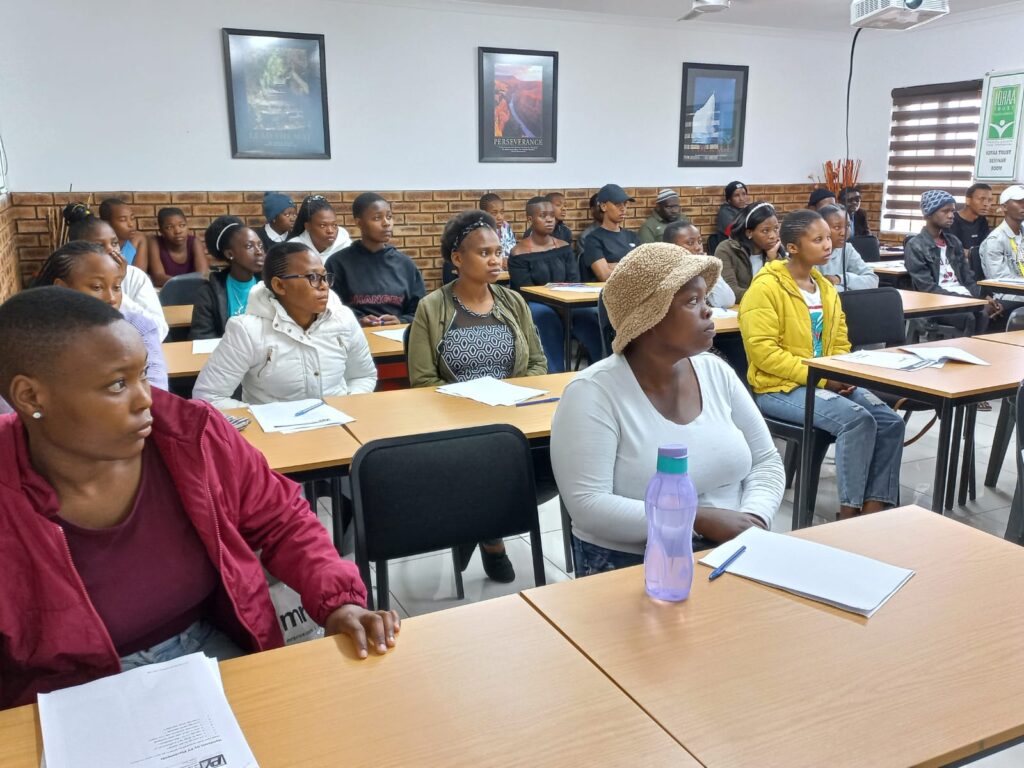
Nabeelah Shaikh
With the rising unemployment rate in the country, the Muslim Youth Movement of South Africa (MYM) is giving hope to communities by helping them acquire vital skills.
The MYM recently hosted Project Hope, a free skills training workshop to empower the unemployed. The MYM partnered with the Southern Africa Dawah Network to host the workshop at the M.A Motala Islamic Centre in Wyebank, Durban.
The workshop held between 14-16 August focused on uplifting attendees by helping them improve skills such as CV writing, preparing for an interview, and career guidance, as well as teaching them how to draft a business plan.
The MYM’s Asif Essop, said: “The basic skills attendees acquired at the workshop will afford them a better chance of being considered for jobs and the ability to start a business and become job creators.
On the positive side, many of the unemployed youth may have certain hidden talents or skills that could be utilised to benefit them and the economy.
“The vision of Project Hope was to develop a practical plan providing them with opportunities that could make them more employable,” said Essop.
Attendees of the workshop said the programme was informative, relevant and effective – it was way beyond their expectations.
An attendee told Al-Qalam: “I’ve tried to open a business and I’ve failed many times. I would like to extend my thanks to the hosts because now I know how to write up a business plan. I have made business plans before but some have failed,”
Shabeer Nhleko of the M.A Motala Islamic Centre said the workshop has certainly given hope to the community.
“One of the reasons we brought it to the M.A Motala Islamic Centre is because we do a lot of work with NGOs in the community and it was needed. We said it was a good opportunity to join hands and partner with the MYM to bring such an initiative to the community,” he added.
He said from the group of young people who were trained, some are actively looking for jobs.
“Something that was very useful for them was being taught how to do their CVs. Some were still doing their CVs like it was done in the 1980s. And they learned about modern ways of writing their CVs, to become more appealing to recruiters,” said Nhleko.
He said one student who had finished his course in the sewing programme came to him last week wanting to place an official application on volunteerism because there was a session on this.
“At least this shows the programme has heeded positive results. We hope the programme can be held in the community more frequently now – at least twice a year at the M.A Motala Islamic Centre,” said Nhleko.
Interactive
Project Hope Facilitator, Rashid Chopdat, said it was pleasing to see how attendees this year were far more responsive and appreciative of the programme.
“We’ve got the right material that these young people need, to give them hope in their lives. They spoke about how useful and beneficial it was for them. Most of them were ex-students who participated, one academic and some were business owners. The programme was highly interactive and they could speak to us on a personal level. They really opened up to us about their experiences. Some of the class were involved in businesses, and said that they found our business sessions very helpful,” said Chopdat.
Chopdat said there were quite emotional moments during their evaluation of the event.
“A young lady fought cancer and then she decided she would do this course to empower herself. She realised that it would put her on the right path to regain her life – and she shared that experience with us,” said Chopdat.
He said there was a good mix of content presented to participants.
“They needed strong guidance in their careers and now we’re looking at a career guidance programme for them. There’s a war out there for jobs and they become very despondent that there are no jobs for them at the local level. The programme, in general, gave them new inspiration that all is not lost for them,” said Chopdat.
The Regent Business School was also part of the programme and did a presentation on robotics by bringing in a robotic dog that they created and designed at the institution.
“This showed the attendees some of the things that can be achieved with new technologies and innovation and what can be done when you apply your mind to achieving something,” said Chopdat.











